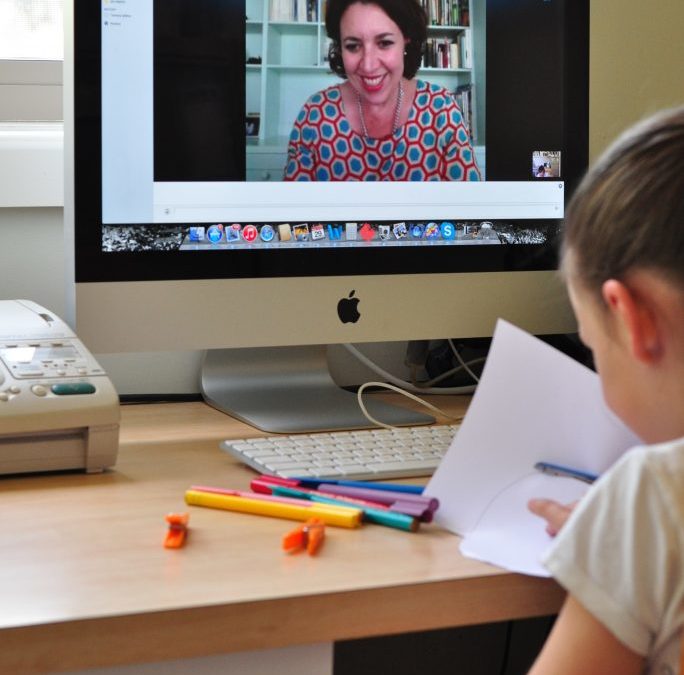This blog was written by Therapy Connect’s Community of Practice Leads Katelynd, Skye and Lauren
As more people learn about neurodiversity, there’s a growing need for inclusive and personalised support—especially through online therapy in Australia. For NDIS allied health providers, particularly those offering online psychology, speech therapy, and occupational therapy, this is a great opportunity to be leaders in the space.
By offering telehealth occupational therapy, online speech pathology, and other flexible supports, providers can make a big difference for neurodivergent people and their families across Australia.

What is Neurodiversity?
Neurodiversity means that everyone’s brain works in a different way. Some people are neurotypical—they think and learn in ways that are expected by society. Others are neurodivergent, which includes people with:
- Autism
- ADHD
- Dyslexia
- Tourette Syndrome
- Sensory processing differences
- Intellectual disabilities
- Learning difficulties
These are not disorders to “fix”—they are simply different ways of experiencing the world.
Online psychologists in Australia and other allied health professionals are increasingly adopting this perspective. Neurodivergent individuals often have unique strengths in creativity, memory, or problem-solving. With the right support—like speech therapy for autism or occupational therapy for autism—they can thrive in school, work, and daily life.

What Does It Mean to Be Neuroaffirming?
Neuroaffirming therapy is all about acceptance and respect. It means:
- Supporting people as they are
- Valuing their communication and learning styles
- Avoiding goals that try to “normalise” them
- Setting goals with the person, not for them
This fits perfectly with the core values of the NDIS—choice, control, and individualised support.

Why Online NDIS Providers Can Be Innovators
Online allied health services are already different from traditional clinics. Through tools like OT telehealth, online speech therapy, and virtual psychology sessions, providers can offer flexible, empowering care that works well for neurodivergent clients.
Here’s how Therapy Connect and other online therapists in Australia can lead the way:

1. Flexible Services That Fit the Client
Online therapy means clients can stay in familiar, calming environments like their own homes. This is especially helpful for autistic individuals or those with sensory differences.
Examples:
- A child receiving online occupational therapy may feel more comfortable using their own toys during sessions.
- A teen with ADHD might prefer short, focused online psychology sessions instead of long appointments.
Speech therapists in Australia and online occupational therapists can offer:
- Shorter or flexible session times
- Visual schedules and sensory breaks
- Choice to have camera on/off
- Personalised approaches that respect sensory needs

2. Using Lived Experience to Shape Services
The best online therapists listen to the people they support. This might mean involving neurodivergent individuals in:
- Reviewing therapy documents and resources
- Co-developing goals for NDIS speech therapy or executive functioning coaching
- Giving feedback on therapy tools or session formats
When services are shaped by lived experience, they’re more relevant, respectful, and effective.

3. Providing Easy-to-Understand Support Tools
Neurodivergent clients often benefit from clear, simple, and visual resources. Online services can easily provide:
- Short videos explaining therapy goals or exercises
- Step-by-step visuals for ADLs (Activities of Daily Living), fine motor or gross motor routines
- Plain English handouts and Easy Read versions of reports
These tools help people feel more confident and in control.

4. Training Therapists to Be Neuroaffirming
Even experienced speech pathologists, occupational therapists, and online psychologists need regular training. Online providers can lead by offering training on:
- Understanding sensory needs in telehealth occupational therapy
- Masking, burnout, and communication preferences
- Using identity-first language (like “autistic person”)
- Creating goals based on client interests and NDIS goals
This supports the development of therapy that’s affirming, respectful, and engaging.

5. Letting Clients Lead the Way
Instead of focusing on changing behaviours, online therapists in Australia can focus on building self-awareness, confidence, and communication.
Examples:
- In autism speech therapy, encourage the use of AAC (Augmentative and Alternative Communication) if verbal speech isn’t preferred.
- In occupational therapy online, support clients to build sensory kits or self-care strategies that actually work for them.
The goal is always: support the person, don’t try to “fix” them.

Final Thoughts: Leading with Innovation and Care
As the understanding of neurodiversity grows, online allied health providers in Australia are in a unique position to lead the way. Whether through speech therapy online, NDIS dietitian services, or online occupational therapy for kids, they can offer flexible, empowering, and truly person-centred support.
It’s not just about good therapy—it’s about inclusion, respect, and innovation.




